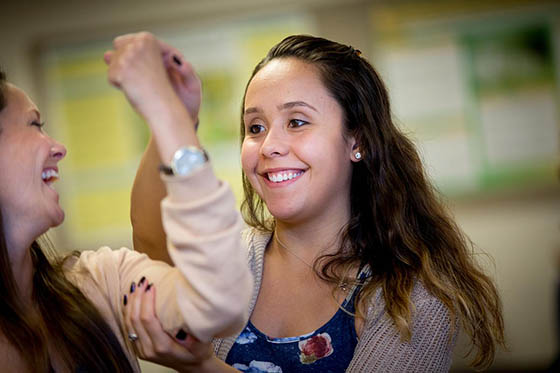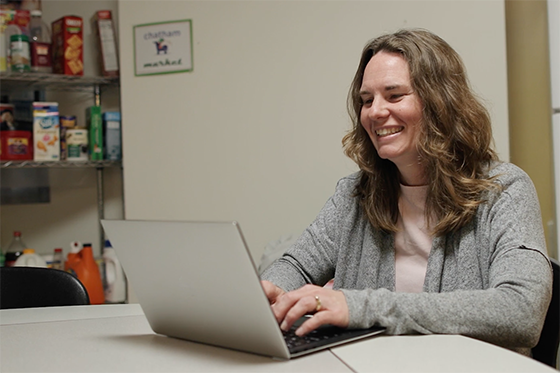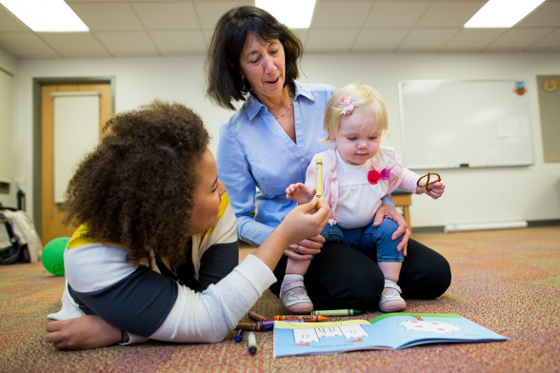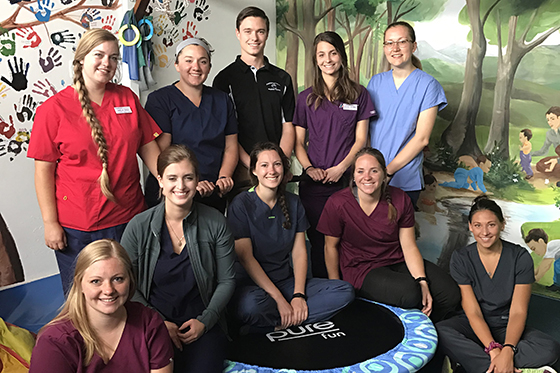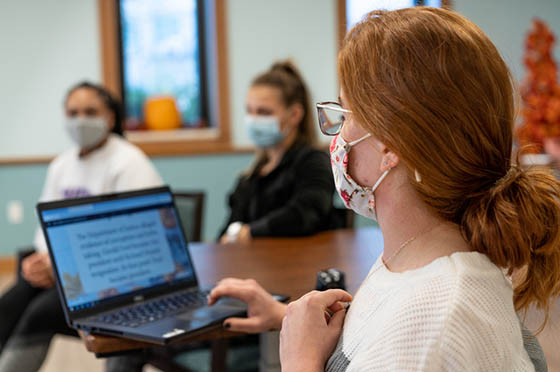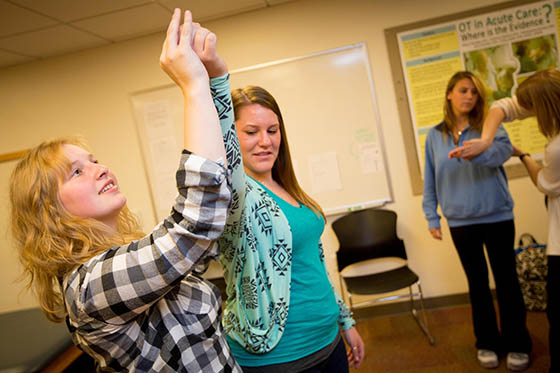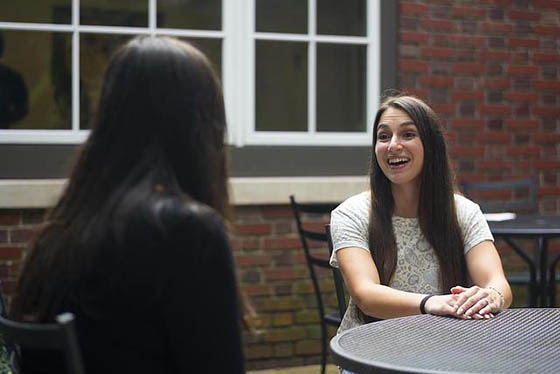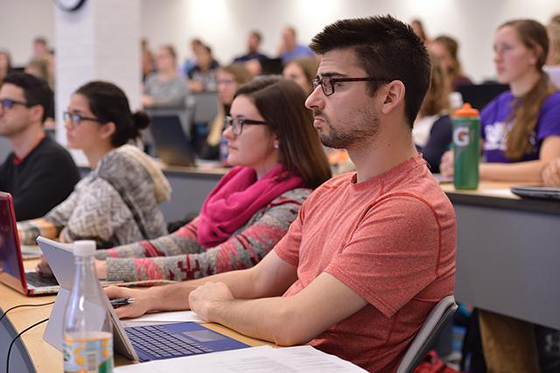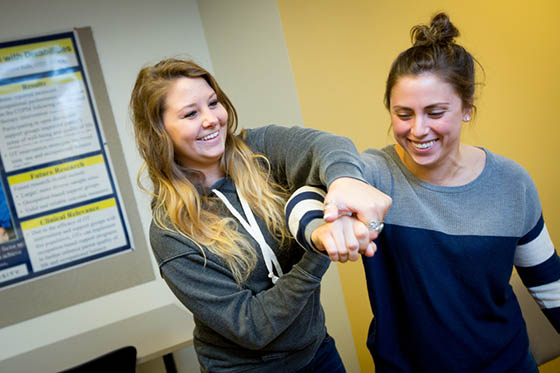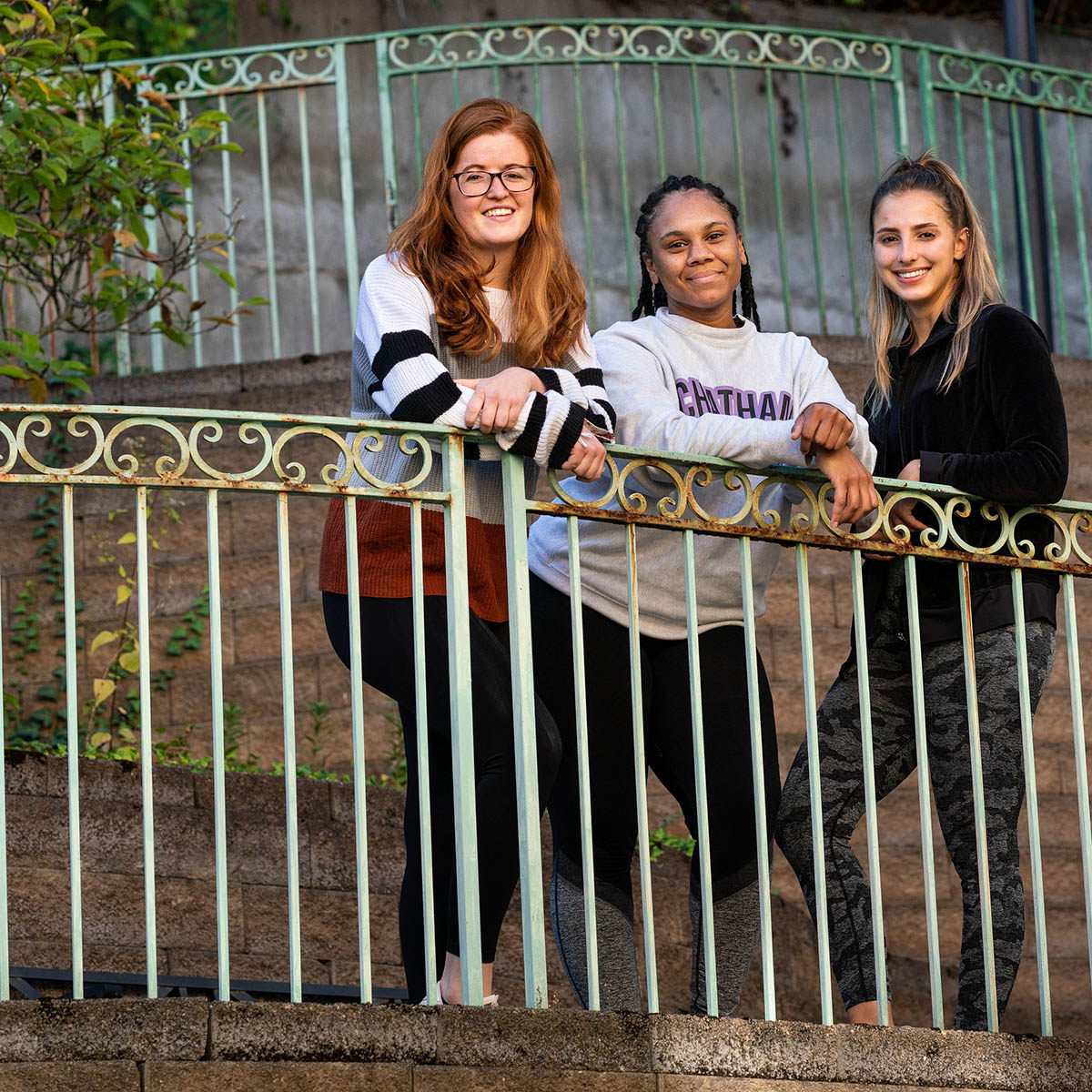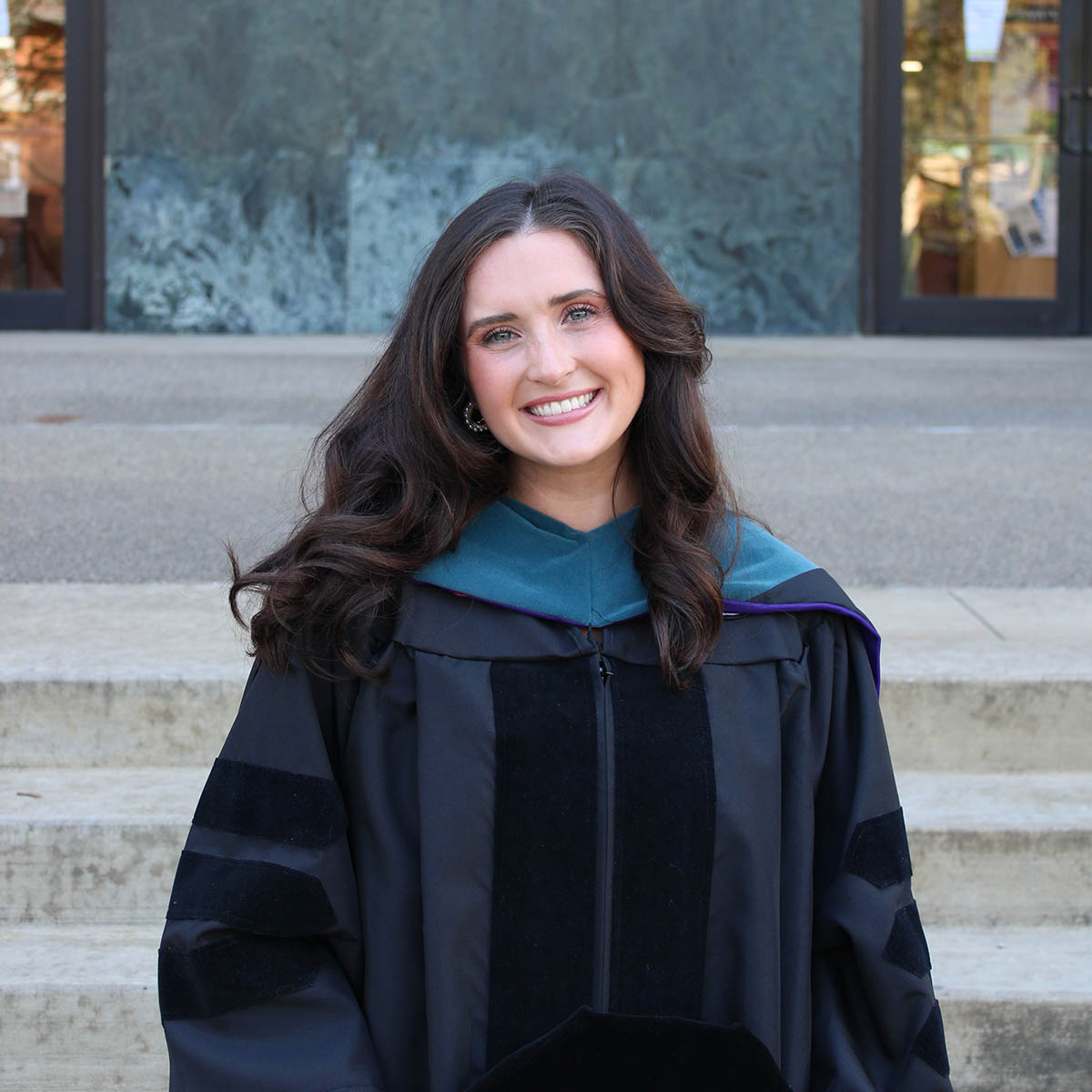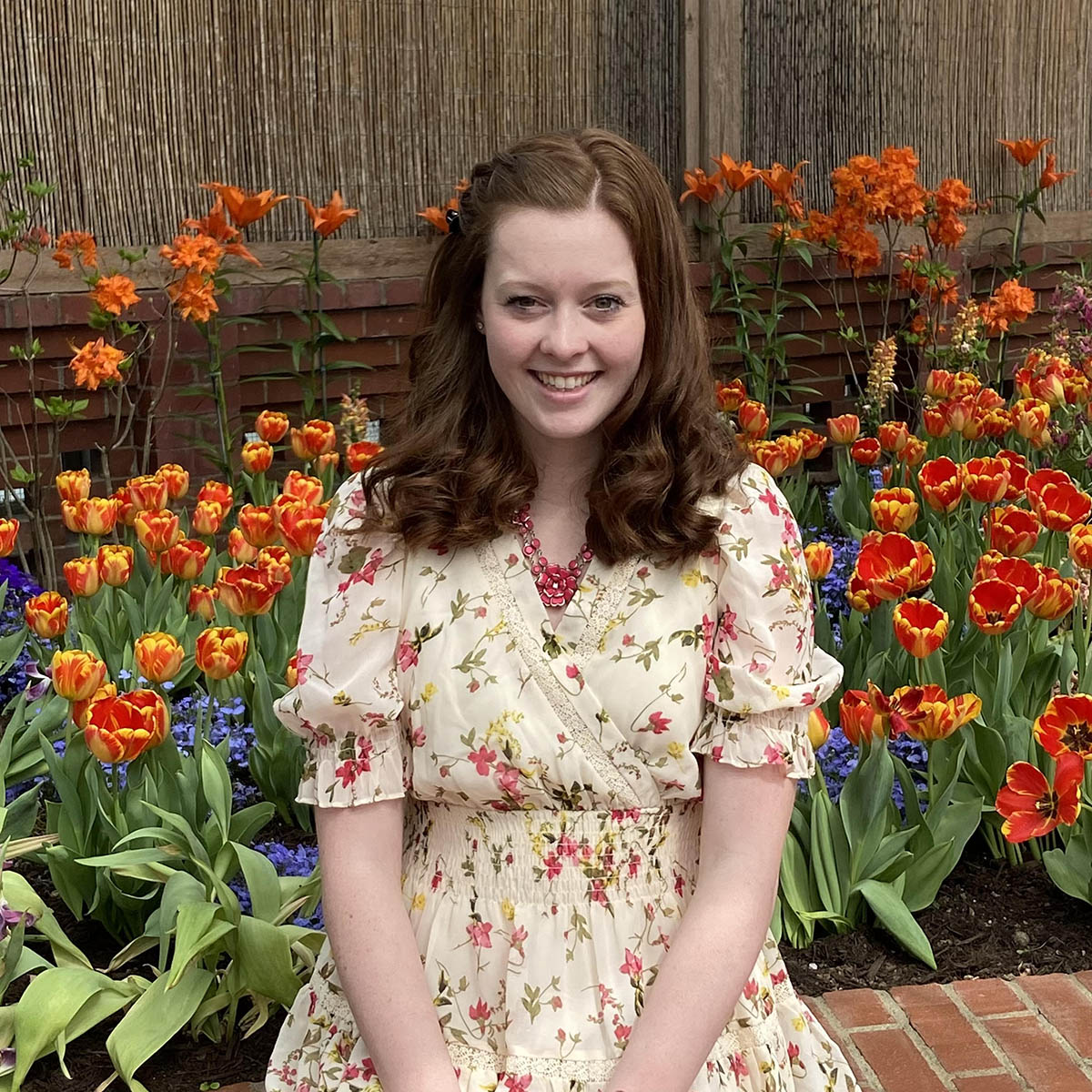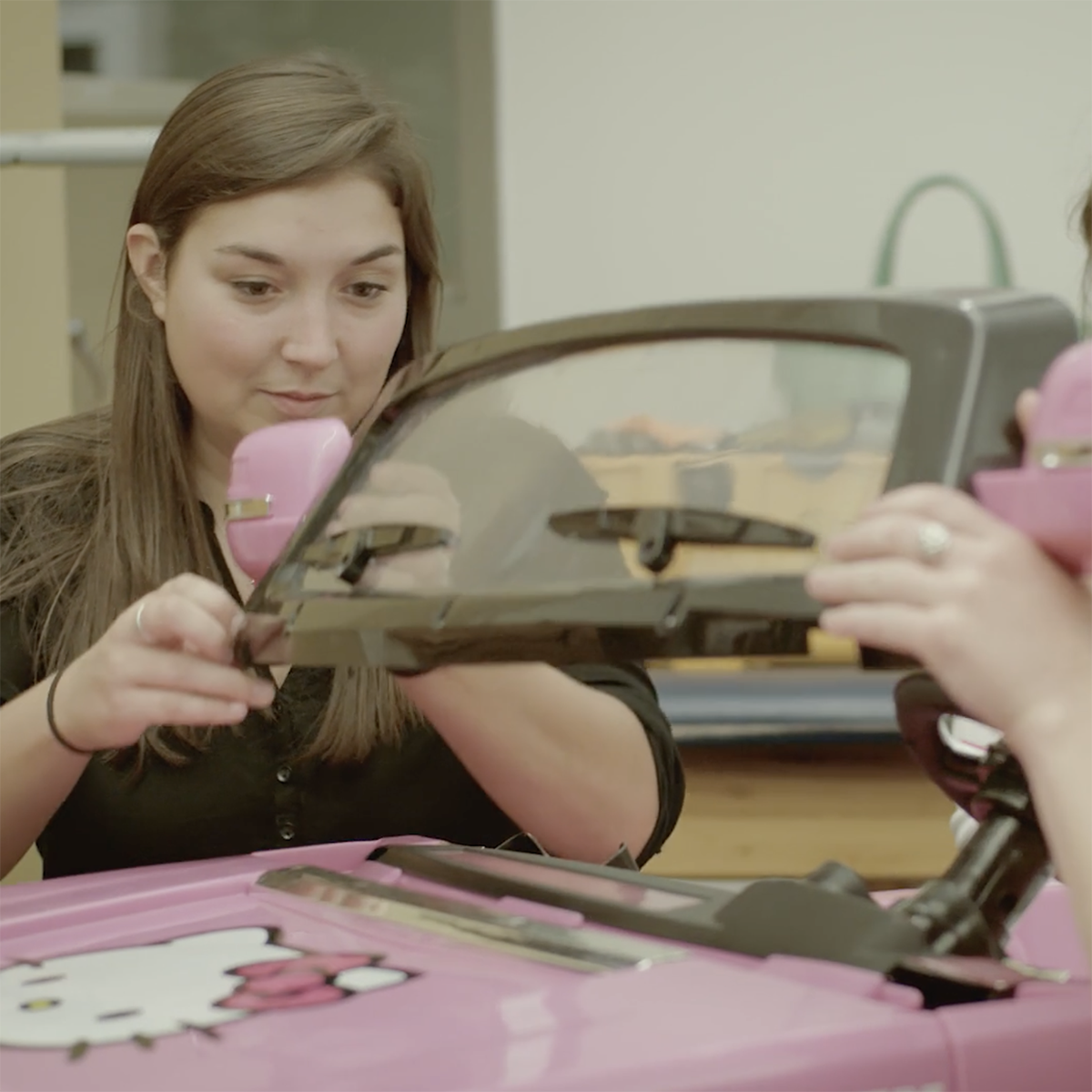Occupational Therapy, Entry-Level (ELOTD)
Have questions? We make it easy to get in touch:
Or, answer a few questions and we will be glad to help.
Loading...
Occupational Therapy, Entry-Level (ELOTD) Overview
Chatham is proud to offer the entry-level Doctor of Occupational Therapy (ELOTD) program for students wishing to obtain this credential who hold a bachelor’s degree. At Chatham, you can earn your OTD in only 28 months—one term beyond the Master of Occupational Therapy (MOT). The OTD provides more real-world experience through a doctoral project in your area of interest. Through this project, you’ll increase the scope of your career to include paths such as leadership, advocacy, research, program development, and advanced clinical practice.
Application Deadline
Rolling
Completed applications must be e-submitted to OTCAS and are now being accepted on a rolling basis. Additional information can be found in the Admission Requirements section below.
Credits Required
99 (7 terms)
This full-time cohort program begins each fall and is completed in only 28 months, just one term past what is required for a master’s degree.
Learning Opportunities
Leadership Focus
The ELOTD program provides students with opportunities to engage in a variety of leadership activities throughout the curriculum. Learn more below.
Important Information
Accreditation
Chatham’s ELOTD program has been granted Accreditation Status by the Accreditation Council for Occupational Therapy Education (ACOTE) of the AOTA. Click here to visit our accreditation page.
The program guides students through introspection and self-reflection to develop individualized, authentic leadership skills, and prepares them with the tools and knowledge to be leaders within the OT profession and society at large. Students are provided opportunities both inside and outside the classroom to explore and apply cutting-edge theories and intervention approaches. They gain an understanding of professional responsibilities and advocacy through engagement in various personal and professional leadership and scholarship opportunities.
—JODI SCHREIBER, OTD, OTR/L, C/NDT, Associate Professor of Occupational Therapy
Information Sessions
After exploring the website, attend one of our Entry-Level Occupational Therapy (ELOTD) prospective student webinars to talk with faculty and learn more about this program. At these online sessions, you’ll have the opportunity to connect with faculty, get your questions answered, and learn more about the admissions process.
View OT Events : Checkerboard 1 - Information Sessions
Our Mission
To prepare and empower innovative, compassionate occupational therapy practitioners, scholars, and leaders to promote sustainable health and well-being among individuals, populations, and communities through the power of occupation.
Focus on Leadership
Chatham’s entry-level OTD program provides students with opportunities to engage in a variety of leadership activities throughout the curriculum. They are assigned a leadership advisor, and take part in a leadership advising group. In addition, there are multiple opportunities to engage in advocacy and leadership roles throughout the program, including program committee positions to foster the development of professional service and leadership skills.
Highlights & Community Outreach
Students benefit from a range of extracurricular opportunities, including participating in student-run organizations, professional organizations, international connections, experiential opportunities, the sensory garden at Eden Hall Campus, multigenerational living opportunities, and applying for fellowships and scholarships.
Explore Highlights & Community Outreach : Checkerboard 5 - Highlights & Community Outreach
Interprofessional Education (IPE)
Interprofessional education involves students from two or more health professions learning together during their training. The goal of IPE is to enhance communication and decision-making, allowing various domains of knowledge to complement each other.
Learn About IPE : Checkerboard 6 - Interprofessional Education (IPE)
Program Faculty
Chatham’s OTD faculty members bring a wealth of clinical experience as well as teaching experience in a range of practice settings. They serve as mentors and advisors and are there for you every step of the way.
Meet the Faculty : Checkerboard 7 - Program Faculty
Location in Pittsburgh
Chatham's location allows for access to a network of resources from surrounding colleges and universities. The many nearby hospitals, clinics, and community agencies offer a wide variety of opportunities for observation and fieldwork experiences. There’s lots of opportunity to network with local OT clinicians through guest lectures and panel discussions.
HAPPY2 Project
In the summer of 2025, Chatham University’s Graduate Psychology and Occupational Therapy Programs were awarded a collaborative four-year grant from the Health Resources and Service Administration (HRSA) to continue the HAPPYProject.
Explore HAPPY2 Project : Checkerboard 10 - HAPPY2 Project
Support an OT Student
The Class of 2018 created the Joyce Salls Occupational Therapy Student Award, which honors Dr. Salls’s dedication to her students and the field of Occupational Therapy. The purpose of this award is to provide recognition and financial assistance to a deserving occupational therapy student at Chatham University’s School of Health Sciences.
Give Now : Checkerboard 16 - Support an OT Student
Occupational Therapy, Entry-Level
